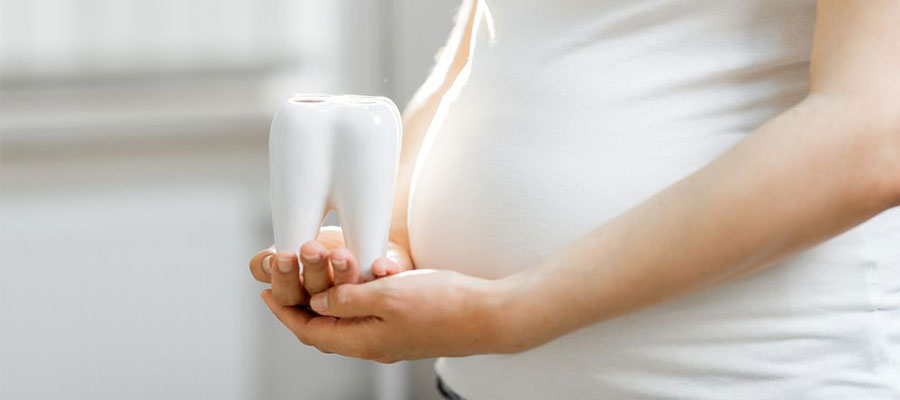Why is dental health important during pregnancy?
It is a special period when women and mothers-to-be should pay attention to both their own health and the care of their babies. However, dental health can often be overlooked during this period. However, hormonal changes occur directly in the mouth and teeth during pregnancy. It is of great importance to take care of oral care for a healthy reproduction.
Factors Affecting Dental Health at Birth
Hormonal changes:
Increased progesterone and replacement hormones during the period can cause differences in the gums. This can increase the risk of gingivitis (pregnancy gingivitis).
Craving and Nutritional Regulations:
Turning to sweet and carbohydrate-rich foods during birth can reduce the risk of tooth decay.
Morning Sickness:
Stomach acid coming back into the mouth can damage tooth enamel and accelerate tooth eruption.
Gum Problems:
If gum infections become severe at birth, can cause gum disease and are not treated, this can increase the risk of premature birth or low birth weight.
Things to Consider for Dental Health at Birth
- Regular Dentist Check-ups
It is important to check your oral and dental health by visiting your dentist before birth or in the first period of pregnancy. If any problems occur during the birth process, the second trimester is a safe treatment process.
- Daily Oral Care
Brush your teeth at least twice a day with a fluoride toothpaste.
Clean the bacterial plaque on your teeth using dental floss.
After morning power, rinse your mouth with water to clean the remaining acids in your mouth.
- Balanced Nutrition
A diet program rich in calcium, phosphorus, vitamin C and vitamin D for tooth and bone health.
Limit sugary foods and prefer healthy snacks.
- Pay Attention to Gum Problems
If swelling, bleeding or pressure differences are observed in the gums during birth, consult your dentist. Gum diseases can lead to more serious problems if left untreated.
- Avoid Unnecessary Treatments
Avoid non-urgent aesthetic or elective dental treatments during pregnancy. Non-urgent procedures may be safer after birth.
Misconceptions About Birth Day and Dental Health
No Dental Treatment at Birth:
False. Dental treatment during birth can be performed especially in the second trimester. When tooth loss or conditions such as conditions are treated, they can pose greater risks for the mother and baby.
The Baby Gets Calcium from the Mother’s Teeth:
False. The baby gets the calcium it needs from the mother’s diet. In the case of insufficient calcium intake, the mother’s bones, not the teeth.
What Causes Tooth Loss on the Day:
False. It does not cause tooth loss on its own. However, if good oral care is not done, gum diseases or cavities can cause this result.
Can Dental Treatment Be Performed in the Past?
Yes, some dental treatments can be performed during pregnancy. Things to consider:
First Trimester: Dental treatments should be avoided unless necessary.
Second Trimester: This is the safest period for treatment. Filling, tartar cleaning and gum treatments can be performed in this way.
Third Trimester: Long-term treatments can cause disorders, so non-urgent procedures are left after birth.
Taking care of oral and dental health during pregnancy is vital for both the expectant mother and her health. With regular check-ups, a healthy diet and proper oral care, you can get through this period without any problems. You can improve your oral health in the best way possible during pregnancy by getting recommendations from your dentist.
Remember, a healthy smile is the mirror of a healthy life!




